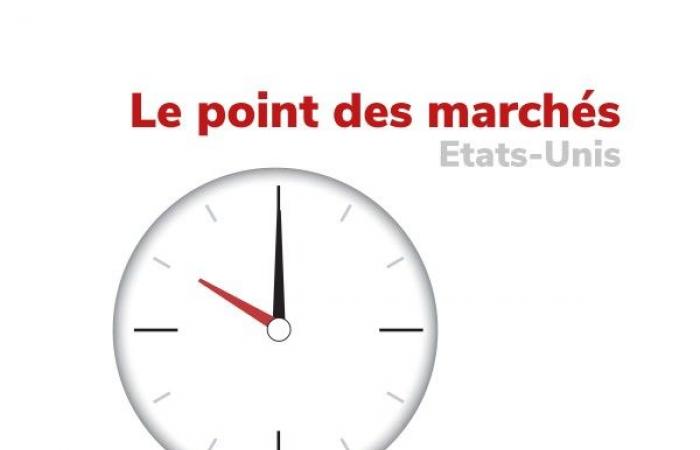The Dow Jones gained 0.04%, the Nasdaq crumbled by 0.10% and the broader S&P 500 index fell by 0.09%.
The New York Stock Exchange ended at a level close to equilibrium on Thursday, the rebound started at the start of the session eroding under the effect of ambient uncertainty and a further rise in bond rates.
The Dow Jones gained 0.04%, the Nasdaq index fell 0.10% and the broader S&P 500 index fell 0.09%.
The Dow Jones was only a handful of points away from ending a streak of ten consecutive trading days in the red, a first in 50 years.
The New York market had approached this day with confidence after a clear decline the day before, following the communication from the American central bank (Fed).
The Fed has lowered its key rate but only plans two additional reductions in 2025, whereas until now it was counting on four cuts.
But the rebound quickly ran out of steam.
It’s “a lackluster turnaround,” commented Patrick O’Hare of Briefing.com.
For José Torres, of Interactive Brokers, “the market is trending downward.”
Steve Sosnick of Interactive Brokers points out that even if the VIX index, which measures investor nervousness, fell on Thursday after taking off the day before, “it remains high.”
Investors were notably dissuaded from committing further by a new surge in bond rates.
The yield on US government bonds rose to 4.59%, compared to 4.51% the day before, a first in almost seven months.
Investors carried out a brutal recalibration after the Fed meeting and are even more conservative than the institution itself, now counting on a rate cut at best in 2025.
The tenacity of inflation and the prospect of future measures from the new Trump administration likely to strengthen prices even further raise fears of the persistence of an environment of high rates for a long time to come.
For Patrick O’Hare, the market is preparing for a volatile year in 2025, a context which could prove unfavorable for stocks.
In the short term, the analyst does not expect the budget crisis facing the American Congress to significantly affect the New York Stock Exchange, which has become accustomed to it and expects a relatively rapid resolution.
Donald Trump said on Wednesday his opposition to a transpartisan budget agreement which had to be voted on before Friday evening, the deadline beyond which the American government would no longer be financed.
The president-elect echoed criticism from entrepreneur Elon Musk, to whom Donald Trump entrusted a mission to examine public spending, but also from several elected Republican officials.
On Thursday, Republican officials nevertheless claimed to have reached a new agreement and planned a favorable vote at the end of the day.
On the stock market, some stocks benefited from a timid hunt for bargains, notably the semiconductor manufacturer Nvidia (+1.37%), Netflix (+1.40%) and PayPal (+1.56%). , which had all collapsed on Wednesday.
The speakers welcomed the results of the consulting firm Accenture (+7.06%), which exceeded analysts’ projections and raised its turnover target for the entire financial year, even if it lowered its profit estimate range.
The semiconductor manufacturer Micron remained in uncontrolled skid (-16.18%), after the publication on Wednesday of forecasts considered disappointing.
Biotech Vertex plunged (-11.37%) after a clinical trial of its non-opioid painkiller Suzetrigine showed results similar to those recorded for patients who had received a placebo.
The agri-food giant Lamb Weston, considered the largest producer of fries in the world, went through a downturn (-20.10%), after the publication of a surprise loss and the drastic lowering of its annual forecasts.
The Eagle (Idaho) group is facing an increase in costs combined with a slowdown in sales.






